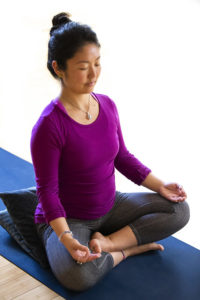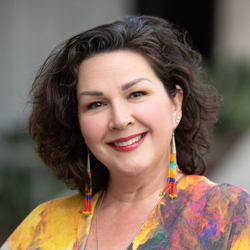
We may question the very foundation of our most deeply held beliefs. The way we see the universe, other people, relationships, life itself, and the way things are can change drastically. We think about who we are now that this has happened to us, and try to decide how that makes sense based on who we were before grief came and what that will mean when we become whomever it is we will be in the future. We contemplate the strangeness of the loss of past interests and the inability to care about things that were once important. We wonder why other people continue to care about those things. We wonder what it all means—if it means anything. And how could this have happened?
We have fears we never had before and we often find brave ways of talking ourselves out of them and of continuing on anyway. We ponder at the ways we are more fearless than ever before. We wonder why we are still here, how we will go on from this place and why we should bother trying. We worry, and at the same time do not care, what others think of us. We imagine our loved ones someplace or no place and wonder what it is really like where they are—if they are. We worry that we are crazy and that no one else could possibly understand. We feel deep connections with others who share this kind of pain and we are capable of understanding suffering, compassion, and empathy in ways we never imagined before.
We hate and we long to be alone with our thoughts. We have thoughts and feelings of guilt, regret, anger, unfairness, and yearning. We search for relief, for answers, for signs of our loved ones’ continued existence and involvement in our lives. We hope they are okay and safe and happy. We remember them and we miss them and we continue to love them and long for them. All of this changes and then, in different ways, repeats.
The ultimate goal of Yoga is the realization of our True Selves—that part of us that is always whole, peaceful, and ever-connected with the All. The many struggles and sufferings of life, including grief and loss, contribute greatly to our forgetting the Truth of who we are. Meditation is one of the tools of Yoga that can help us find a place of peace and equanimity—especially in times of pain, grief, heartbreak, and loss.
Many people in general, much less those dealing with grief, loss, and trauma, struggle with meditation. We may feel that we can’t quiet our minds or find a peaceful place. This seems particularly true when we are in pain. But as the magnet on my fridge says, “Peace does not mean to be in a place where there is no noise, trouble, or hard work. It means to be in the midst of those things and still be calm in your heart.” It may seem impossible in the midst of pain and grief that you can find a way to calm in your heart, but the promise of the practice of meditation is just that. And it is based on the premise of the very definition and goal of Yoga: that we are already perfect and whole.
Meditation is one of the practices that helps us to learn that we can, bit by bit, gain access to that true peaceful nature that is our birthright because it is who we truly are. With practice, your meditation practice can become an anchor in the midst of a chaotic mind, a chaotic heart, and a chaotic world. We learn to become present to the moment of now, where there is only what is happening at this moment, even when what is happening may be difficult. We learn that when we can do this, we can also watch the chaos subside. And we learn to trust ourselves to move through the pain. And when we continue to practice, inevitably, we will drop into those precious moments of peace and stillness, where the whirling dervish of the storm does cease. We learn that we can return to that place and over time, with practice, we begin to see how learning to gain access to those spaces of peace influence our everyday lives, even when we are not practicing.
TRY THIS!

To begin, sit in any comfortable position, on the floor or on a chair, with your spine long and straight but not stiff. Find a comfortable position for your hands, either folded gently in your lap, or resting on your thighs or knees—palms up or down, whichever feels right to you. Close your eyes if that feels comfortable. If not, find a spot on the floor a few feet in front of you and allow your gaze to soften. As you sit, begin to notice the temperature of the air on your skin, notice any sounds you may hear within or outside the room. Begin to notice your body’s weight as it is supported by the chair or the floor. Notice the feel of the floor or the chair under your sitting bones, under your legs.
Notice the feel of the floor beneath your feet. Expand your awareness to noticing the sensations of your entire body without feeling the need to change anything. Simply notice.
Now, begin to notice and follow the movement of your breath as it moves in and out of your body, as you inhale and exhale. As you inhale, notice the temperature and the vibration of the air as it flows through your nasal passages, down your throat and trachea, on its way into your lungs. Notice the different sensations of your belly, your ribs, your chest as they expand. As you exhale, notice the temperature of the air, the movement of the tiny hairs of your nose, the feeling of your lungs empty of air as it leaves your body. Simply notice these things and any other sensations that occur as you continue to breathe, easily and naturally, in and out. Simply notice your breath as it moves in and out of your body without the need to change anything at all. Notice how your breath feels. Is it easy and effortless? Or labored and difficult? Does watching the breath seem natural or strange? With as little judgment and as much compassion as possible, just breathe.
About the Author:

NOTE: Karla Helbert will be teaching the program “Strengthen Your Container with Heartful Meditation” June 26, 2021 via Yogaville Online.

